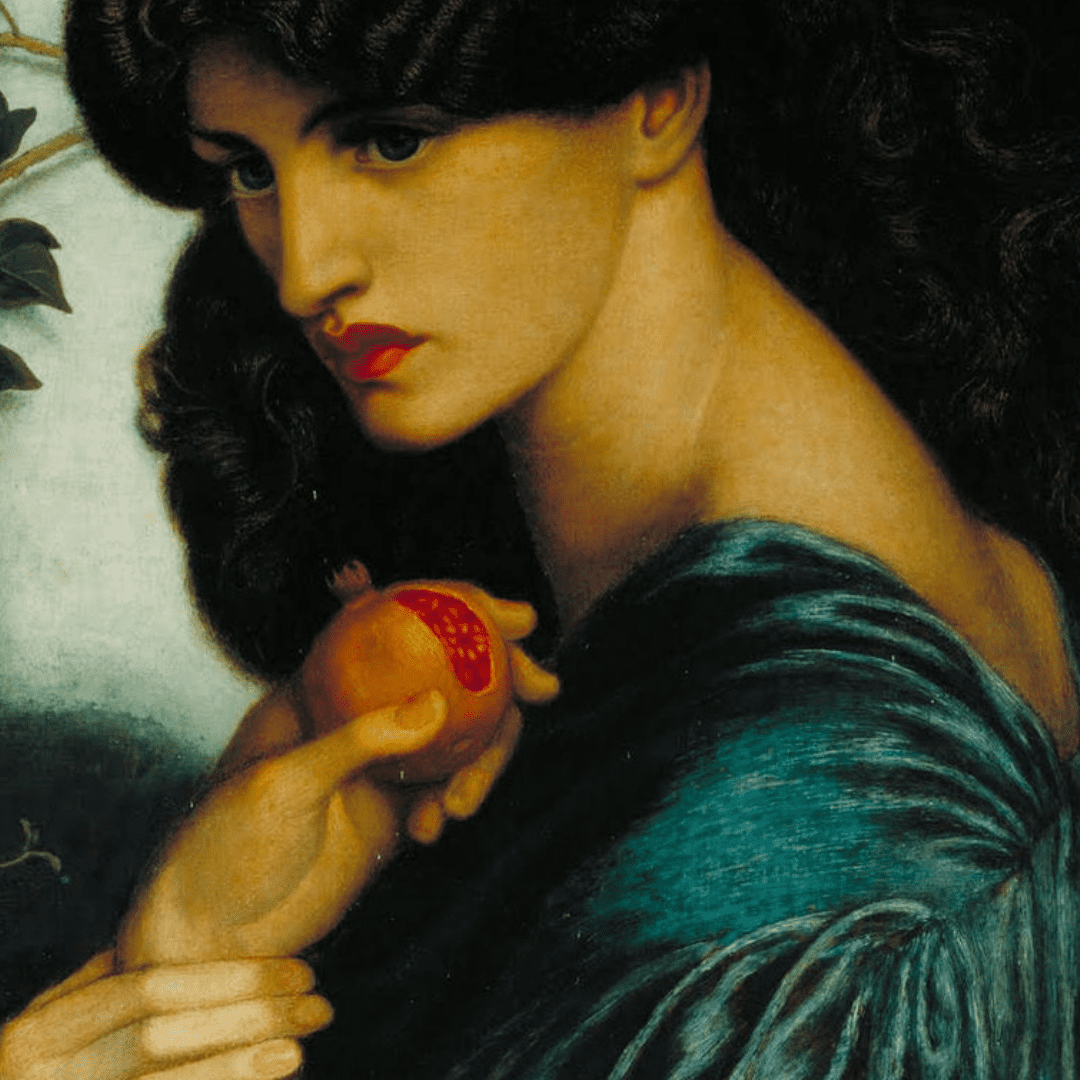The advent of the seasons

Discover this dramatic tale of Pluto and his bride Persephone
According to Roman mythology, the seasons were created by the epic myth of love, loss, deceit, beauty, conflict, gods, goddesses and six little seeds… read about the tale of Pluto and his queen Persephone.
Enter Persephone: the daughter of Jupiter, king of the gods and Ceres, the goddess of grain, nature and harvests. She possessed an extraordinary beauty. Like her mother, she delighted in nurturing flowers and fruits, and tending to the infinite bounties of nature.
Her beauty was so luminous her mother hid her from the hungry eyes of gods and mortals to protect her chastity and independence. Little did Ceres know that Pluto, god of the Underworld, longed for a queen and having been shot with Cupid’s arrow, desired no-one more than Persephone. Perhaps love could exist in the Underworld?
Persepehone knelt humming on a beautiful sunny morning, gathering flowers in a basket, the sun catching highlights in her hair, when seven dark horses thundered through the earth pulling Pluto on his mighty chariot. He swept Persephone off her feet and into his arms – laying claim to the unsuspecting maiden and dragging her down into the depths of the Underworld. The gash of earth sealed behind them; Persephone had vanished.
The Earth withered with her Mother's grief
Ceres deeply mourned the loss of her daughter and nature mirrored her misery. The fields and orchards grew withered and barren, leaving nothing to eat. Raised by the cries of starving humans on earth reaching the heavens, Persephone’s father realised it was time for divine intervention. Puce with rage, he commanded that every corner of the earth was combed, every hill and vale, every meadow and mountain, desert and cave… but to no avail. Her absence remained a mystery and depending on which version of the story you read, it was Sol, the Roman god of the sun, who revealed Persephone’s plight. Again incandescent with anger, Jupiter went to rescue his daughter.
Pluto refused to give her up so, in retaliation, Jupiter threatened to withhold the lost souls on earth from entering his dark kingdom.
Recognising his defeat, Pluto begged. He had taken Persephone blinded by love rather than driven by malicious intent. He pleaded: just one more night with his queen. Jupiter conceded: one night.
Pluto devised a plan
That evening, Pluto divined a plan. He persuaded Persephone to eat six sweet and sharp pomegranate seeds before her return to the earth. As Pluto knew only too well, those who eat in Hades are forever doomed to return – so those six little pomegranate seeds (sometimes considered the fruit of the dead) bound her to the Underworld.
When Mercury arrived the next morning to collect Persephone, he realised Pluto had tricked them all. Persephone’s fate was sealed: she was destined to return to the underworld for six months of every year, a month for every seed she ate.
The birth of the seasons
On Persephone’s return to the surface, nature sprang back to life with her mother’s joy. The flowers blossomed and crops flourished once more. That is, of course, until the cycle had to repeat itself. When Persephone returned to the Underworld, Ceres wept and nature withered. And so the seasons were born.
A story full of drama, deceit and dualities: of darkness and light, death and life
For us patchouli perfectly represents the the intersection between the darkness of the underworld and the flourishing nature on the surface of the earth.
The fascination of patchouli is the contradiction between its bright, green, delicate leaves and tiny flowers and its powerful, deep, dark, earthy, sweet, spicy woody scent that you would normally expect to find in roots and woods. And it is this central note that we explored through the lenses of Pluto and Persephone. Discover the two unique patchouli fragrances in our CONSORT collection.



